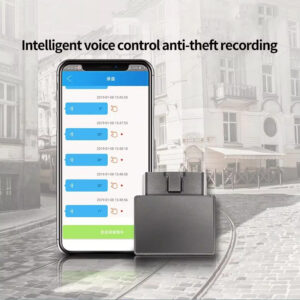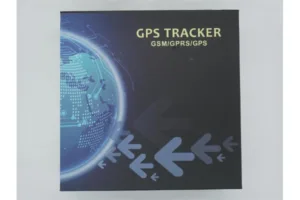
Complete GPS solution
We gather top-tier national GPS R&D engineers, leveraging solid technical strength to flexiblymeet customization needs across all scenariosincluding vehicle-mounted and pet-related applications.
Vehicle GPS trackers redefine car rental operations. They provide unmatched control. Rental companies now rely on this technology. It optimizes everything from customer service to cost reduction.
Modern challenges demand smart solutions. Fleet owners face theft, maintenance neglect, and inefficient routing. GPS tracking addresses these issues directly. It turns data into actionable insights.
This article explores the multifaceted benefits of GPS trackers. We delve into real-world applications. You will understand why this technology is indispensable.
The Core Challenges in Car Rental Management
Car rental businesses operate in a dynamic environment. They serve diverse customers. Managing a dispersed fleet is complex.
Vehicles move across cities. Sometimes they cross state lines. Traditional management methods fall short. They cannot provide real-time visibility.
Common issues include:
- Unauthorized vehicle use
- Delayed maintenance leading to breakdowns
- Inefficient fuel consumption
- Customer disputes over usage and fees
GPS trackers mitigate these risks. They offer a digital eye on every vehicle.
Real-Time Location Monitoring: The Backbone of Efficiency
Real-time tracking forms the system’s core. It lets managers see vehicle locations instantly. This capability transforms operations.
Rental companies monitor movements continuously. They ensure customers follow agreed routes. This prevents unauthorized long-distance trips.
For example, a New York rental agency tracked a vehicle heading to Canada. They intervened promptly. This avoided potential legal and insurance complications.
Additionally, dispatchers optimize vehicle allocations. They identify the closest available car for urgent bookings. Customer wait times drop significantly.
Geofencing: Automated Boundary Control
Geofencing creates virtual boundaries. It triggers alerts when vehicles enter or exit designated zones. This feature automates compliance monitoring.
Airport rental offices often set geofences. They receive notifications if cars leave predefined areas. This reduces unauthorized usage.
Similarly, luxury vehicle rentals use geofencing. They ensure cars remain within city limits. This protects high-value assets.
Alerts come via email or SMS. Managers act immediately. They contact customers to verify route changes.
Maintenance Scheduling: Prolonging Vehicle Lifespan
Scheduled maintenance is crucial. It prevents costly repairs and extends vehicle life. GPS trackers automate this process.
Systems track mileage and engine hours. They generate maintenance alerts automatically. Workshops receive notifications for oil changes or tire rotations.
One Florida-based rental company reduced breakdowns by 40%. They used predictive maintenance alerts. This enhanced customer satisfaction.
Well-maintained vehicles also improve safety. They minimize accident risks due to mechanical failures.
Fuel Management: Cutting Operational Costs
Fuel costs significantly impact profitability. GPS trackers monitor fuel consumption patterns. They identify inefficiencies.
Systems detect unusual fuel drops. This indicates potential theft or leakage. Managers receive instant notifications.
Additionally, routing optimization reduces fuel waste. Dispatchers choose the shortest paths for recoveries. This saves time and resources.
A Texas fleet owner reported 15% lower fuel costs. They implemented GPS-based route planning.
Theft Prevention and Recovery: Protecting Assets
Vehicle theft is a persistent threat. GPS trackers serve as powerful deterrents. They enable rapid recovery.
Hidden devices transmit locations continuously. Even if thieves disable visible security systems.
Authorities access real-time location data. They recover stolen vehicles quickly. Often, before significant damage occurs.
A California rental agency recovered a stolen SUV within hours. They used GPS tracking coordinates. This prevented a total loss.![]()
Customer Behavior Monitoring: Ensuring Responsible Use
Monitoring driver behavior is essential. It promotes responsible vehicle use. GPS systems track speed, braking, and acceleration.
Rental companies identify risky driving patterns. They discuss these with customers upon return. This encourages safer driving.
Furthermore, data resolves disputes objectively. Companies provide evidence of misuse when necessary.
This transparency builds trust. Customers appreciate fair treatment based on accurate data.
Integration with Rental Software: Streamlining Operations
Modern GPS trackers integrate with rental management platforms. This creates a unified operational view.
Automated billing uses mileage data. Maintenance schedules sync with workshop calendars. Customer communications trigger based on location events.
Such integrations reduce manual work. Employees focus on value-added tasks. Overall productivity soars.
Data Analytics: Driving Strategic Decisions
GPS systems generate vast data. Advanced analytics transform this into business intelligence.
Companies identify peak rental periods. They adjust pricing dynamically. They also optimize fleet composition based on usage patterns.
For instance, data might show high demand for SUVs in winter. Managers adjust purchasing strategies accordingly.
VSGPS Advanced Tracking Solutions
VSGPS develops cutting-edge GPS trackers. They specialize in customizable solutions for rental businesses.
Their devices feature:
- Ultra-precise location tracking
- Long-lasting battery life
- Rugged, weatherproof designs
- Easy integration with existing software
VSGPS focuses on reliability. Their systems operate flawlessly in diverse conditions.
Moreover, they offer a scalable architecture. Small startups and large enterprises find suitable solutions.
Addressing Privacy Concerns Ethically
Privacy is a valid concern. Rental companies must balance monitoring with respect.
Transparency is key. Clearly explain tracking in rental agreements. Highlight security and safety benefits.
Never use data for unauthorized purposes. Respect customer boundaries. This builds long-term trust.
Conclusion: Embracing the Digital Transformation
Vehicle GPS trackers are no longer optional. They are essential tools for modern car rental management.
They enhance security, reduce costs, and improve customer experiences. Companies using them gain significant competitive advantages.
VSGPS provides robust solutions tailored to the rental industry’s needs. Their technology empowers businesses to thrive.
Embrace GPS tracking today. Transform your rental operations for a profitable future.


